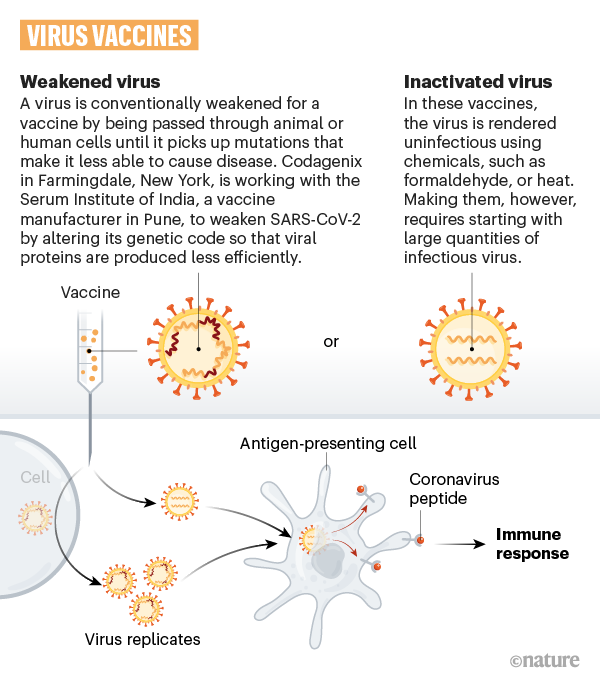Think of it in terms of when you have a coldit takes your body a good amount of time to rid itself of whats making you sick. If youre going to get the systemic side effects it generally occurs after the second shot when you get not only muscle aches but you can get joint aches David Sellers MD the first healthcare worker at Ascension Saint Thomas Hospital in Tennessee to receive a.
 Covid Who Is Getting The Pfizer Vaccine First And When Can I Have It Bbc News
Covid Who Is Getting The Pfizer Vaccine First And When Can I Have It Bbc News
Its important to go to your appointments unless you your child or someone you live with has symptoms of COVID-19.

When do vaccines start working. All vaccines work this way. How long does it take for the COVID-19 vaccine to work. Messenger RNA mRNA vaccines.
Generally the protection from the virus starts seven to 10 days after immunisation. Regardless of which vaccine you get you wont reach full protection until two weeks after your second or final dose. Generally the protection from the virus starts seven to 10 days after immunisation.
Lets start with a common question. By 1950 two effective vaccines against the disease had been developed. Vaccinations usually given in school are being rescheduled.
It may kick players from the game if it detects errors in their systems memory or hardware. Hib Haemophilus Influenzae Type B HPV Human Papillomavirus. How long does it take for the AstraZeneca vaccine to work.
The Welsh government says vaccines are now being offered to people aged 40 and over and some health boards have started inviting the 30-39. In general it takes about two weeks after getting a vaccine for antibodies to develop in the body that protect against the diseases the vaccine is made to protect against. Antibodies are proteins produced naturally by the immune system to fight disease.
Thats about how long it takes your immune system to mount an antibody response to the vaccine. But vaccination in some parts of the world was still not common enough to stop the spread of polio particularly in Africa. The Pfizer and BioNTech COVID-19 vaccine is safe effective and starts working within about two weeks of the first dose according to documents published by the Food and Drug Administration today.
People who have been fully vaccinated can start to do some things that they had stopped doing because of the pandemic. Connecticut was one of the first states to finish vaccinations in long-term care. The PfizerBioNtech vaccine needs to be given in two doses and.
Children 6 months through 8 years old who have never gotten a flu vaccine in the past or have only gotten one dose in past years need two doses the first year they are vaccinated. Most vaccines require more than one dose over time to produce immunity and long-lasting protection. Protection begins to build 10 to 14 days after the first shot but its not full-strength There are three coronavirus vaccines authorized for use so far in the US.
Vaccines will become widely available in the coming months. Flu Influenza Hepatitis A. Then an annual flu vaccine is needed because the flu viruses causing disease may be different from season to season.
When you get a vaccine your immune system responds. When the software detects a cheat on a players system it will ban them in the future possibly days or weeks after the original detection. Find a COVID-19 vaccine.
Vaccines reduce risks of getting a disease by working with your bodys natural defenses to build protection. Valve Anti-Cheat VAC is an anti-cheat software product developed by Valve as a component of the Steam platform first released with Counter-Strike in 2002. In the 1980s a united worldwide effort to eradicate polio from the planet began.
It typically takes two weeks after you are fully vaccinated for the body to build protection immunity against the virus that causes COVID-19. All together those three big data sets suggest partial immunity starts at two weeks after the first immunization and maximal protection starts at two weeks after the second immunization. Vaccines Protect Your Community.
Routine vaccinations for babies pre-school children and adults are continuing as normal. Pfizers COVID-19 vaccine starts to work just 10 days after 1st dose By Rachael Rettner - Senior Writer December 08 2020 There was a noticeable drop-off. How long does it take for a vaccine to work.
Between 28 January and 11 February cases in over-80s fell by 52 compared with 47 in under-80s. But case numbers might not be a reliable indicator of whether the vaccine is working. Some groups of people though have high enough rates of vaccination that the benefits are starting to show.
Recognizes the invading germ such as the virus or bacteria.
